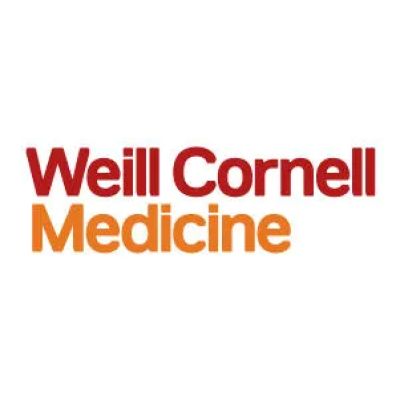- why-the-heart-and-kidneys-work-as-a-connected-system
- how-heart-disease-can-lead-to-kidney-damage
- kidney-disease-as-a-risk-factor-for-cardiovascular-complications
- real-patient-case-learning-from-mark's-dual-diagnosis
- shared-risk-factors-that-accelerate-both-conditions
- holistic-treatment-strategies-to-protect-both-organs
- working-with-specialists-to-manage-complex-cardiorenal-syndrome
1. Why the Heart and Kidneys Work as a Connected System
The heart disease and kidney health connection is more than medical theory—it’s a physiological reality. Your heart pumps blood to nourish every organ, and your kidneys filter that blood to remove waste and maintain fluid balance. When one system falters, the other often follows. This relationship is so tightly interwoven that doctors now use the term “cardiorenal syndrome” to describe the direct impact one organ’s failure has on the other.
Blood pressure plays a key role here. The kidneys help regulate blood pressure through hormone production. When they fail, the resulting hypertension puts excess stress on the heart. Conversely, when the heart weakens and cannot pump efficiently, less oxygen-rich blood reaches the kidneys, impairing their function. It’s a delicate feedback loop, and disruption in one part almost always affects the other.

2. How Heart Disease Can Lead to Kidney Damage
It may surprise many to learn that chronic heart failure is one of the leading causes of kidney dysfunction. When the heart can’t pump blood effectively, kidneys receive less oxygen and nutrients, leading to what’s known as renal hypoperfusion. Over time, this leads to acute kidney injury or chronic kidney disease (CKD).
In patients with coronary artery disease or congestive heart failure, the kidneys are constantly working under less-than-ideal conditions. The medications used—like diuretics and ACE inhibitors—though necessary for cardiac function, can sometimes tax the kidneys further. That’s why routine blood tests to monitor creatinine and glomerular filtration rate (GFR) are critical in heart patients.
At HeartCare Hub, we often guide patients through understanding these trade-offs and adjusting medication under careful supervision to support both heart and kidney health simultaneously.
Capital Health Medical Center – Hopewell
capital health medical center hopewell
1 Capital Way, Pennington, NJ 08534, USA

3. Kidney Disease as a Risk Factor for Cardiovascular Complications
The heart disease and kidney health connection goes both ways. Just as heart failure can lead to renal issues, chronic kidney disease significantly increases the risk of cardiovascular events like stroke, heart attack, and arrhythmia. This happens partly because CKD promotes fluid retention and vascular stiffness—both of which elevate blood pressure and increase the heart’s workload.
Furthermore, kidney disease is linked to chronic inflammation and calcium buildup in the blood, which can lead to arterial calcification and coronary disease. Studies show that people with CKD are up to 20 times more likely to die from heart-related issues than progress to kidney failure requiring dialysis. This shocking statistic underlines why kidney patients must also be considered cardiac patients.
4. Real Patient Case: Learning from Mark's Dual Diagnosis
Mark, a 62-year-old retired schoolteacher from Arizona, came to our clinic with what seemed like ordinary fatigue and ankle swelling. A routine check-up revealed mild heart failure—but labs also showed declining kidney function. His case exemplifies the heart disease and kidney health connection in real life. One organ’s weakness masked the early warning signs in another.
Through coordinated care—diet changes, a tightly monitored medication plan, and regular check-ins with both a cardiologist and nephrologist—Mark was able to stabilize both his heart and kidney function over the next year. Today, he walks two miles daily and manages his condition through a structured, but livable, routine. His journey reminds us that early detection and patient education are powerful tools for long-term wellness.
5. Shared Risk Factors That Accelerate Both Conditions
Heart disease and kidney issues don’t arise in isolation—they’re often the outcome of years of unmanaged risks. Common culprits include:
- High blood pressure: Damages blood vessels, straining both the heart and kidneys.
- Diabetes: Excess blood sugar leads to inflammation and scarring in both organs.
- Obesity: Increases workload on the heart and raises filtration demands on the kidneys.
- Smoking: Narrows blood vessels, impairing oxygen flow to vital organs.
Genetics and family history also play a role, but lifestyle changes remain the most effective intervention. At HeartCare Hub, we offer personalized risk assessment tools to help individuals pinpoint which factors they can take control of right away.
6. Holistic Treatment Strategies to Protect Both Organs
When treating patients affected by both cardiac and renal issues, the goal isn’t just to treat symptoms—it’s to prevent further deterioration. This means integrating diet, exercise, medication, and mental health care into a single, sustainable plan. Low-sodium, heart-friendly diets that also reduce kidney strain (low in phosphorus and potassium) are a starting point. Regular, moderate physical activity improves both circulation and metabolic control.
Medications like SGLT2 inhibitors—originally for diabetes—are now being used to benefit both heart and kidney function. But they require oversight. So does the use of diuretics and anti-hypertensives, which need regular lab checks to ensure kidney safety. Emotional stress is another overlooked factor: chronic stress can elevate blood pressure and cortisol levels, negatively affecting both organs over time. Therapy, mindfulness, and social support groups can all help mitigate this.
7. Working with Specialists to Manage Complex Cardiorenal Syndrome
If you’re navigating both heart and kidney issues, you’ll likely hear the term “cardiorenal syndrome” used. This is not a single disease but a classification of different ways heart and kidney diseases interact and worsen each other. Management requires a multidisciplinary team—including cardiologists, nephrologists, dietitians, and primary care doctors working in sync.
Many patients feel overwhelmed by the need to see multiple specialists. That’s where coordinated care, like the model we use at HeartCare Hub, can transform the experience. We focus on communication across disciplines so that your medications, diet, labs, and exercise all support a unified health goal. Our mission is not just to treat illness—but to empower people to live fuller, longer lives by understanding the deep connection between their heart and kidneys.





















Deborah Heart and Lung Center
deborah heart and lung center
200 Trenton Rd, Browns Mills, NJ 08015, USA